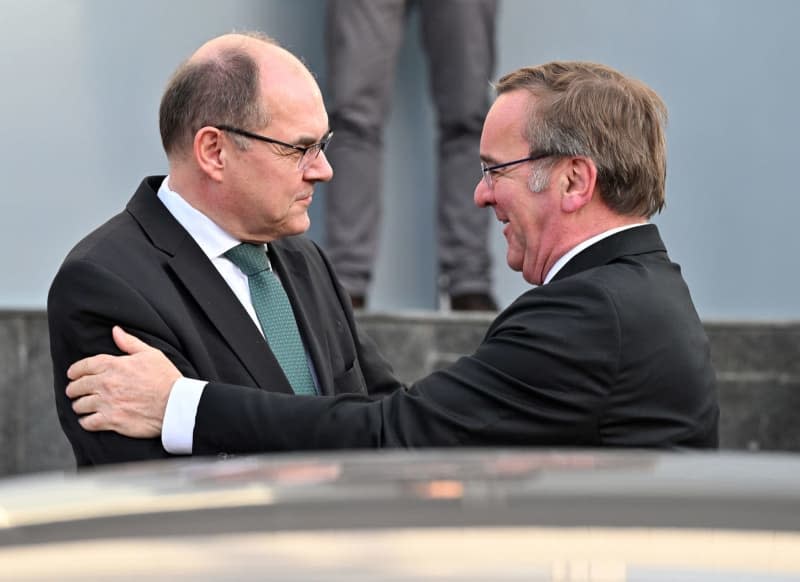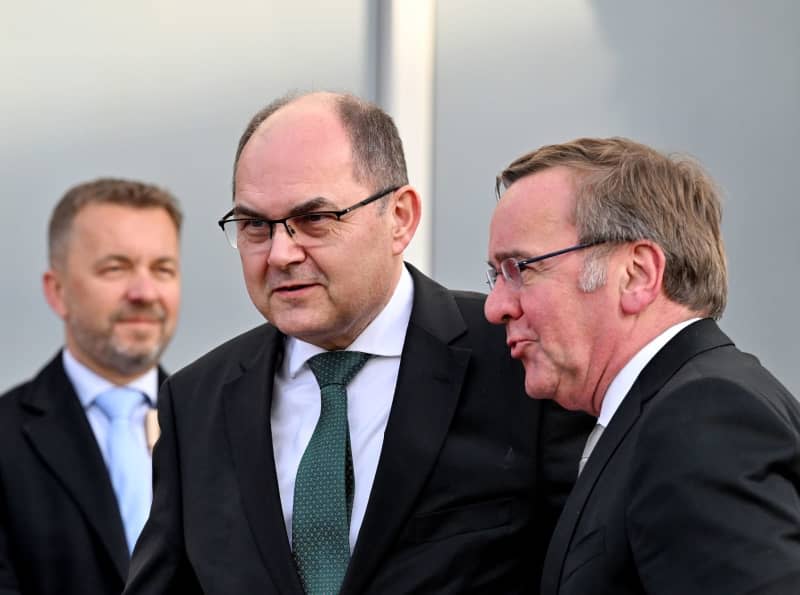German defence minister assures Bosnia of continued support

- Oops!Something went wrong.Please try again later.
- Oops!Something went wrong.Please try again later.
- Oops!Something went wrong.Please try again later.
German Defence Minister Boris Pistorius plans to continue Germany's involvement in Bosnia and Herzegovina, he said on Tuesday during a multi-day visit to the Balkans.
"We want to support Bosnia and Herzegovina to the best of our ability and prevent Russia from misusing another trouble spot, another potentially destabilizing area, to expand its influence in the assumption or hope that it can destabilize the West in some way," Pistorius said at a meeting with his counterpart Zukan Helez in the Bosnian capital Sarajevo.
Pistorius encouraged Bosnia to make further reform efforts on its way to joining the European Union and NATO.
Pistorius clearly rejected the secessionist rhetoric of leading representatives of the Bosnian Serb Republic (Republika Srpska), saying that one cannot dance at two weddings. Germany was concerned about the tensions in the Balkans. The entire Western Balkans are of great importance to Europe's security and stability.
Helez said that Bosnia-Herzegovina would never accept such a secession, but felt the destabilization. He said: "These are dreams that will never come true."
When asked, he also made it clear that NATO would ultimately have to guarantee the stability of the country.
Pistorius travelled from Kosovo to Sarajevo to meet government representatives and Christian Schmidt, the head of the Office of the High Representative (OHR), designed to implement civilian aspects of the Dayton Peace Agreement, which ended the war in Bosnia and Herzegovnia in 1995. Schmidt is a German national. Pistorius also visited a language school run by the Bosnian armed forces and co-financed by Germany.
Pistorius is due to meet German soldiers from the EU stabilization mission in the country, the European Union Force (EUFOR) Althea, on Wednesday.
The German army, or Bundeswehr, has around 30 men and women stationed in Bosnia as part of the mission. It was set up to support the Dayton accords.
The country remains a potential theatre of conflict. German soldiers gather information through patrols and contact with the local population and institutions, and compile situation reports.
EUFOR Althea's declared task is to support the Dayton Peace Agreement. However, the country remains a potential centre of conflict. Recent statements by Russia and attempts to exert influence have caused concern.
In the view of the Council of Europe, however, the failure to come to terms with the past on the territory of the former Yugoslavia is also dangerous for the future of the region.
The "remarkable regression" in dealing with the past goes hand in hand with negative trends in human rights and ultimately threatens the hard-won peace, said the Council of Europe's Human Rights Commissioner, Dunja Mijatović, back in November in Strasbourg.
"Divisive and hateful narratives and actions have become a common political strategy, including in the context of elections, and dangerously undermine efforts to prevent the recurrence of violence," the Council of Europe said. Reconciliation efforts are seriously hampered by the increasing denial of war crimes and the glorification of perpetrators.
Pistorius visited the Kosovan capital Pristina on Monday.


